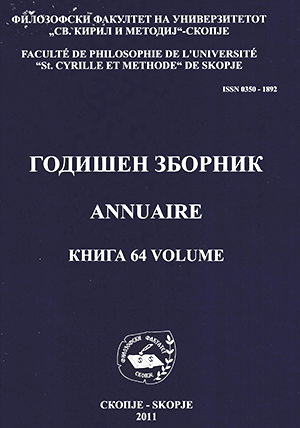AUTOMATIC THOUGHTS AND LOCUS OF CONTROL AS FACTORS FOR ACADEMIC ACHIEVEMENT
DOI:
https://doi.org/10.37510/Keywords:
POSITIVE AUTOMATIC THOUGHTS, NEGATIVE AUTOMATIC THOUGHTS, INTERNAL LOCUS OF CONTROL, EXTERNAL LOCUS OF CONTROL, ACADEMIC ACHIEVEMENTAbstract
Many studies have shown that students with high basic abilities, good working habits and learning skills could fail because of some internal mediating cognitive processes. The aim of this study is to investigate influence of different types of automatic thoughts (positive and negative) and locus of control (internal and external) on students' academic success. On the basis of their average grades, students are divided into 2 groups: with higher and lower academic achievement. The general hypothesis states that students with lower academic achievement have more frequent appearance of negative automatic thoughts, less frequent of positive ones and rather external locus of control.
Student Automatic Thoughts Questionnaire and Rotter's Locus of Control Scale were distributed to 61 university students. The analysis of obtained data indicates significant difference in negative automatic thoughts between groups of students with lower and higher academic success (t~ -2,702; p<(),01), as well as between groups of students with internal and external locus of control (t= -2,60; p<0,05). Positive automatic thoughts do not emerge as a differential factor for groups of students with higher and lower academic success (t= -0.338; p>0,05), as well as for those with internal and external locus of control (t=0.537; p>0,05).
The study shows that students with negative automatic thoughts (fear of failure) and external locus of control achieve lower grades. Findings do not confirm the contribution of positive automatic thoughts in achieving academic success.
References
Downloads
Published
Issue
Section
License
Copyright (c) 2011 Elena Achkovska Leshkovska

This work is licensed under a Creative Commons Attribution 4.0 International License.





